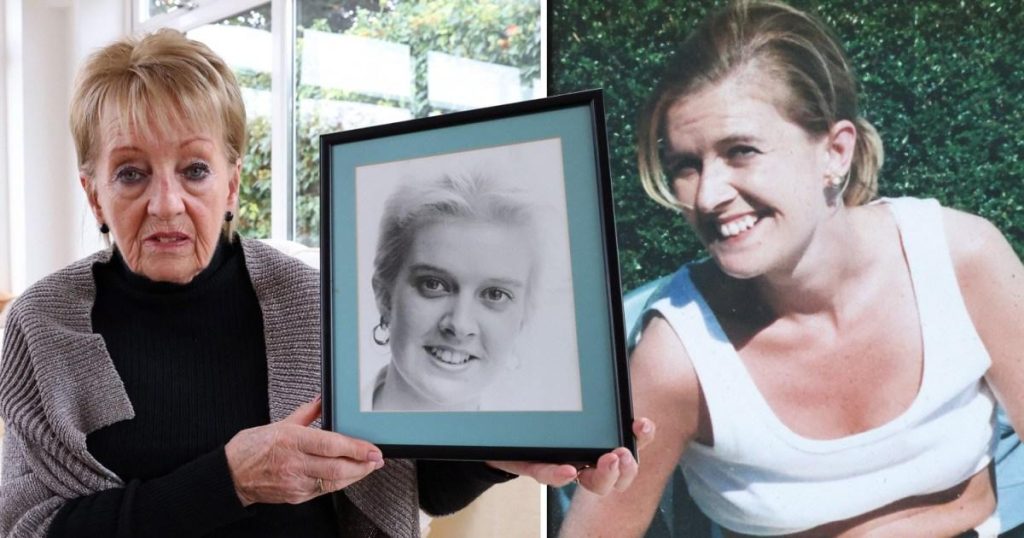Doreen Soulsby’s world was shattered anew on a Wednesday morning. An email, followed by a dreaded phone call, confirmed the news she had feared for years: Steven Ling, the man who brutally raped and murdered her 29-year-old daughter, Joanne Tulip, on Christmas Day in 1997, had been released from prison. Ling, a former labourer, had been sentenced to life imprisonment in 1998 after stabbing Joanne 60 times in a horrific, sadistic attack in Stamfordham, Northumberland. Despite the judge’s assertion at the time of sentencing that Ling would never be released as long as he posed a danger to women, the Parole Board deemed him fit for release after his fifth parole hearing, a decision upheld despite a challenge from the Justice Secretary. For Doreen, this release represents a catastrophic failure of the justice system, leaving her terrified for the safety of all women, particularly young women, knowing that the man who inflicted unimaginable suffering on her daughter is now free. She believes he remains a significant risk and will likely reoffend.
The Parole Board’s decision, while acknowledging the gravity of the crime and its devastating impact on Joanne’s family, maintained that their focus remained solely on Ling’s current risk to the public and the manageability of that risk within the community. They cited Ling’s participation in programs addressing violent and sexual offending and his generally exemplary conduct in prison. Although a rape charge was left on file during the original trial, preventing him from being officially classified as a sex offender, the Parole Board’s ruling acknowledged Ling’s admission to raping Joanne. This admission, coupled with his previously undisclosed history of indecent exposure prior to the murder, paints a chilling picture of a deeply disturbed individual whose potential for violence remains a grave concern.
The horrific nature of Joanne’s murder sent shockwaves through the community. Ling, inspired by sadistic impulses, not only stabbed Joanne an appalling 60 times but also raped her, a fact he later admitted. The brutality of the crime led the sentencing judge to declare that Ling would remain incarcerated as long as he posed a threat to women. This promise, now broken by the Parole Board’s decision, has left Doreen Soulsby and her family grappling with a renewed sense of grief and profound injustice. The fear that Ling will strike again hangs heavy, casting a dark shadow over their lives and raising serious questions about the effectiveness of the parole system in protecting the public from violent offenders.
The release of Steven Ling underscores the ongoing struggle to address violence against women. Metro’s “This Is Not Right” campaign, launched in November 2024, aims to shed light on this pervasive issue and empower individuals to take action. The campaign provides a platform for sharing stories and raising awareness about the scale of violence against women, working in partnership with Women’s Aid to engage readers and promote a deeper understanding of this critical issue. Joanne Tulip’s story, tragically brought back into the spotlight by Ling’s release, serves as a stark reminder of the devastating consequences of violence against women and the urgent need for greater protection and justice for victims and their families.
While the Parole Board insists that Ling’s release is subject to strict conditions, including monitoring, a curfew, an exclusion zone preventing contact with Joanne’s family, and mandatory reporting of any new relationships, these measures offer little solace to Doreen Soulsby. The knowledge that Ling is free to walk the streets, despite the horrific nature of his crime and the potential danger he represents, leaves her and countless others living in fear. The Ministry of Justice, while expressing sympathy for Joanne’s family and friends, emphasizes the lifelong licence conditions and intensive probation supervision Ling will be under, with the threat of immediate re-imprisonment should he violate any of these conditions. However, for Doreen, these assurances ring hollow in the face of the irreparable loss she has suffered and the enduring fear that Ling’s release has ignited.
The case of Steven Ling and Joanne Tulip raises fundamental questions about the balance between rehabilitation and public safety. While the parole system aims to reintegrate offenders back into society, the release of individuals who have committed such heinous crimes understandably fuels public anxiety and erodes trust in the justice system. For Doreen Soulsby, the release of her daughter’s killer is not just a personal tragedy but a stark reminder of the ongoing vulnerability of women and the urgent need for a more robust system that prioritizes the safety and well-being of potential victims. The fear, grief, and anger she feels resonate with many who believe that the justice system has failed to adequately protect women from violent offenders like Steven Ling.


